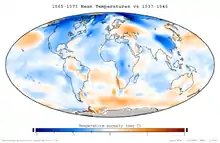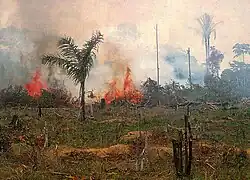Portal:Climate change
The Climate Change Portal Average surface air temperatures from 2011 to 2020 compared to the 1951-1980 average. Source: NASA. In common usage, climate change describes global warming—the ongoing increase in global average temperature—and its effects on Earth's climate system. Climate change in a broader sense also includes previous long-term changes to Earth's climate. The current rise in global average temperature is more rapid than previous changes, and is primarily caused by humans burning fossil fuels. Fossil fuel use, deforestation, and some agricultural and industrial practices add to greenhouse gases, notably carbon dioxide and methane. Greenhouse gases absorb some of the heat that the Earth radiates after it warms from sunlight. Larger amounts of these gases trap more heat in Earth's lower atmosphere, causing global warming. Climate change is causing a range of increasing impacts on the environment. Deserts are expanding, while heat waves and wildfires are becoming more common. Amplified warming in the Arctic has contributed to melting permafrost, glacial retreat and sea ice loss. Higher temperatures are also causing more intense storms, droughts, and other weather extremes. Rapid environmental change in mountains, coral reefs, and the Arctic is forcing many species to relocate or become extinct. Even if efforts to minimise future warming are successful, some effects will continue for centuries. These include ocean heating, ocean acidification and sea level rise. Climate change threatens people with increased flooding, extreme heat, increased food and water scarcity, more disease, and economic loss. Human migration and conflict can also be a result. The World Health Organization (WHO) calls climate change the greatest threat to global health in the 21st century. Societies and ecosystems will experience more severe risks without action to limit warming. Adapting to climate change through efforts like flood control measures or drought-resistant crops partially reduces climate change risks, although some limits to adaptation have already been reached. Poorer communities are responsible for a small share of global emissions, yet have the least ability to adapt and are most vulnerable to climate change. Many climate change impacts are already felt at the current 1.2 °C (2.2 °F) level of warming. Additional warming will increase these impacts and can trigger tipping points, such as the melting of the Greenland ice sheet. Under the 2015 Paris Agreement, nations collectively agreed to keep warming "well under 2 °C". However, with pledges made under the Agreement, global warming would still reach about 2.7 °C (4.9 °F) by the end of the century. Limiting warming to 1.5 °C will require halving emissions by 2030 and achieving net-zero emissions by 2050. Reducing emissions requires reducing energy use and generating electricity from low-carbon sources rather than burning fossil fuels. This change includes phasing out coal and natural gas fired power plants while vastly increasing electricity generated from wind, solar, and nuclear power. This electricity will need to replace fossil fuels for powering transportation, heating buildings, and operating industrial facilities. Carbon can also be removed from the atmosphere, for instance by increasing forest cover and farming with methods that capture carbon in soil. (Full article...) Selected article –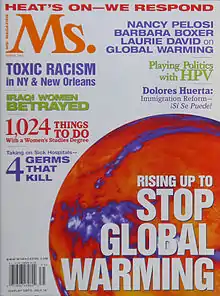 Global warming was the cover story of this 2007 issue of the liberal-leaning feminist Ms. magazine. Media coverage of climate change has had effects on public opinion on climate change, as it conveys the scientific consensus on climate change that the global temperature has increased in recent decades and that the trend is caused by human-induced emissions of greenhouse gases. Climate change communication research shows that coverage has grown and become more accurate. Some researchers and journalists believe that media coverage of politics of climate change is adequate and fair, while a few feel that it is biased. (Full article...)Selected picture –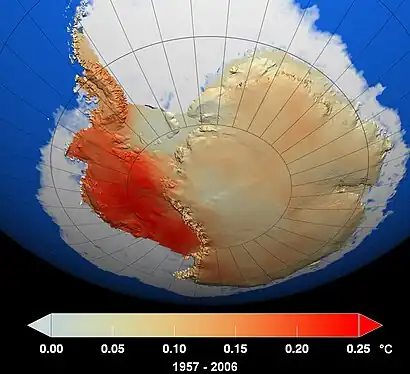 Image showing the temperature trend in Antarctica between 1957 and 2006
WikiProjects
In the newsAdditional News
Selected biography –Sunita Narain (born 1961) is an Indian environmentalist and political activist as well as a major proponent of the Green concept of sustainable development. Narain is director general of the India-based research institute for the Centre for Science and Environment, director of the Society for Environmental Communications, and editor of the fortnightly magazine, Down To Earth. In 2016 Narain was named on Time Magazines list of 100 Most Influential People. She appeared alongside Leonardo DiCaprio in the documentary Before The Flood (2016), discussing the impact of climate change on the Monsoon in India and how it affects farmers. ('Full article...)General imagesThe following are images from various climate-related articles on Wikipedia.
Did you know –Related portalsSelected panorama – Credit: Mike Scalora A view of Sand Mountain campground from the side of Sand Mountain at Little Sahara Recreation Area in Utah. The Little Sahara sand dunes are remnants of a large river delta formed by the Sevier River from about 12,500 to 20,000 years ago. The river emptied into ancient Lake Bonneville near the present day mouth of Leamington Canyon. After Lake Bonneville receded, winds transported the sand from the river delta to the current location. The dunes are still moving 5 to 9 feet (1.5 to 3 m) per year. The area is home to typical Great Basin desert wildlife including mule deer, pronghorn antelope, snakes, lizards and birds of prey. Great horned owls make their home among juniper trees in the Rockwell Natural Area.
TopicsCategoriesCategory puzzle Climate change Climate change by country and region Climate change and society Climate change-related lists Climate change assessment and attribution Climate change and the environment Climate change feedbacks Greenhouse gases Climate change journals Climate change litigation Climate change mitigation Climate change stubs Web resources
Things to do
WikimediaReferences
Discover Wikipedia using portals
|
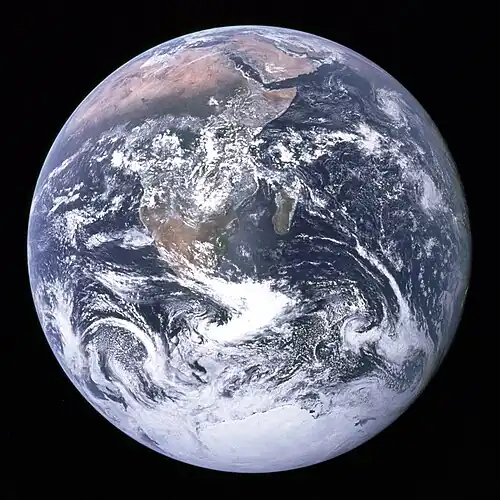
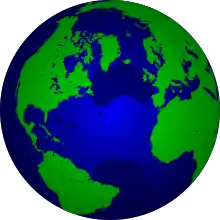
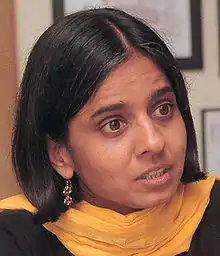
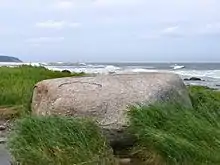
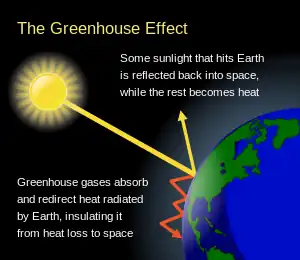

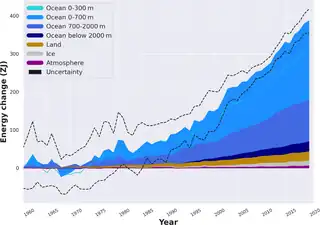

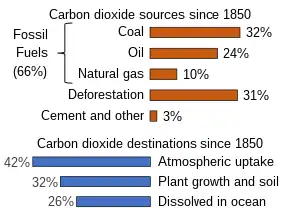
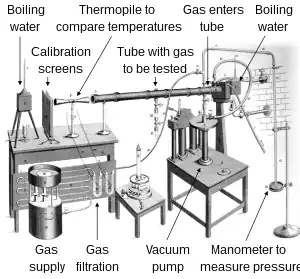
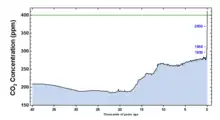
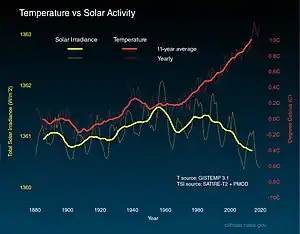
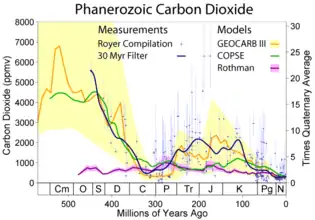

%252C_the_El_Ni%C3%B1o_%E2%80%93_Southern_Oscillation%252C_the_Arctic_Oscillation%252C_and_the_North_Atlantic_Oscillation_(NOAA).png.webp)
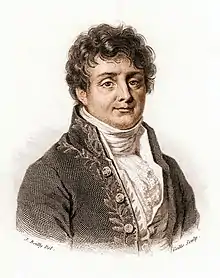
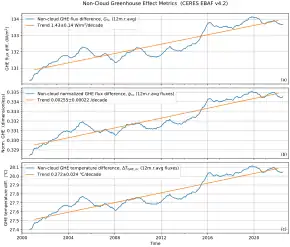
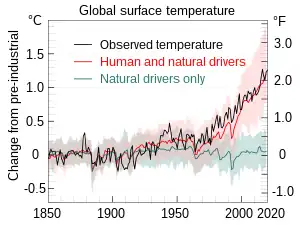
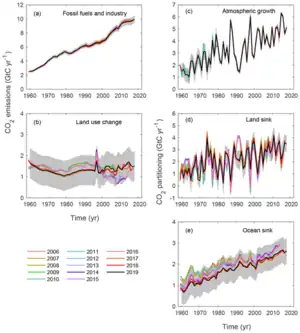
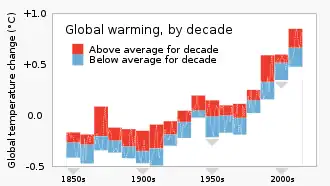

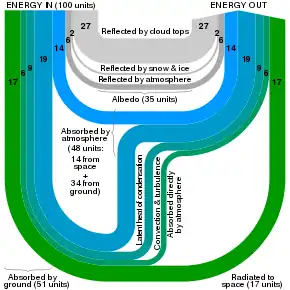

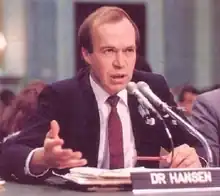
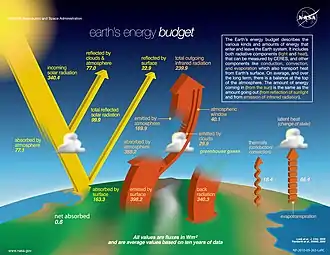

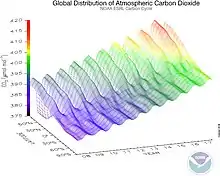

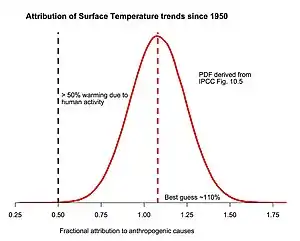
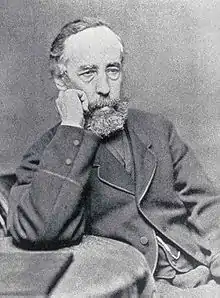
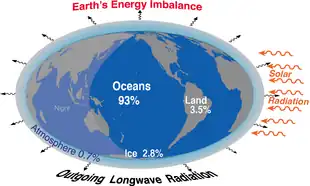

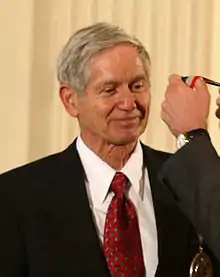
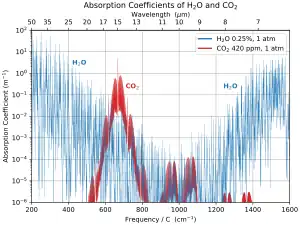

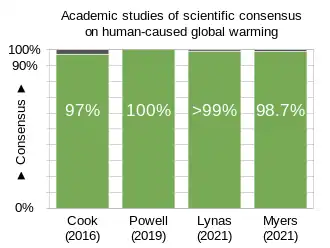
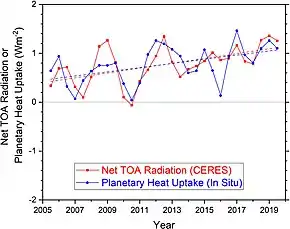
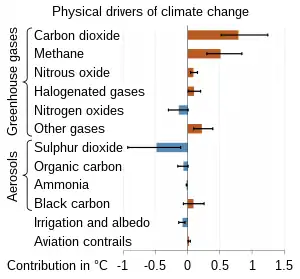
.png.webp)
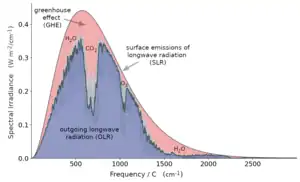





.png.webp)

